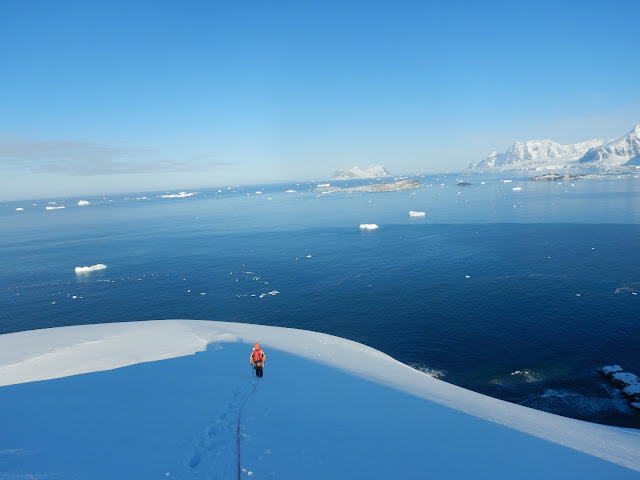Pancake Ice and Winter

Our training on the James Clark Ross ( click to view a previous blogpost ) introduced us to stoves and Tilley lamps which, at the time, seemed hard to imagine the use for while sailing through the tropics. However, when moving around Antarctica, the utility of devices to keep warm is certainly more relevant and much welcomed. On weekends and bank holidays, it is common for people to skin up to the caboose - a small red refuge hut (a reconverted shipping container) - ski or snowboard in some fresh snow and warm up with a cuppa. Interestingly, melting a whole pot of snow yields only a minute amount of water, when expressed as a volume, the snow to ice ratio is 10 parts snow to 1 part water. Bearing in mind this is fresh snow and ice is denser and cutting ice blocks yields a greater volume than the equivalent volume of snow. The caboose - at the bottom of 'Vals', a gentle ski slope Snowboarding on Vals An excellent place for a cuppa! Primus stoves and Tilley lamps inside the Cabo
